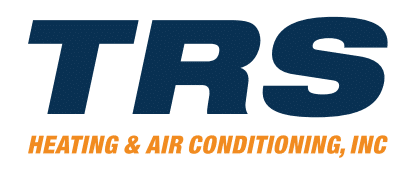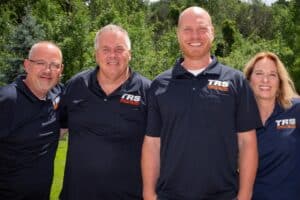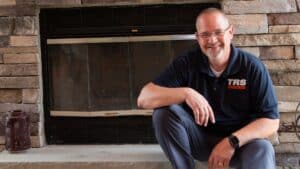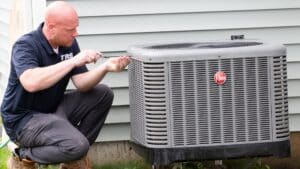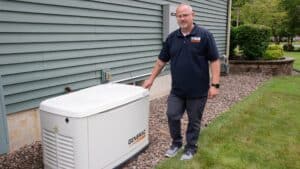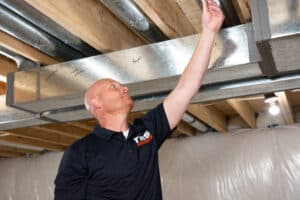By Matt Schultz, Owner of TRS Heating & Air Conditioning, Inc.
September 25, 2025
As the owner of TRS Heating & Air Conditioning, Inc. I’ve been fielding a lot of concerned calls from homeowners across our region. The combination of New York’s new mandate requiring all heating systems to convert to electric, along with steadily rising energy costs, has many families wondering how they’ll manage their heating bills in the coming years.
I absolutely understand these concerns. Energy costs have increased significantly over the past few years, and the transition to electric heating systems presents both challenges and opportunities for homeowners. As someone who’s been in the HVAC industry for years, I want to provide you with honest, practical guidance to help navigate these changes while protecting your family’s budget.
Understanding New York’s Electric Heating Mandate
New York State’s aggressive climate goals include phasing out fossil fuel heating systems in favor of electric alternatives. You can review the draft plans for this initiative to understand the full scope of upcoming changes. This mandate affects new construction immediately and will eventually impact existing homes through various regulatory requirements and incentive programs.
The reality is that this transition is happening whether we’re ready or not. The key is to be proactive rather than reactive, positioning yourself to take advantage of available incentives while making smart efficiency improvements that will save money long-term.
Here are 5 Questions on How To Manage Rising Energy Costs During New York’s Electric Heating Transition
1. Should I Upgrade My Heating System To Try And Reduce Rising Energy Costs?
Always start with insulation first. Here’s why: even the most efficient electric heating system will struggle and consume excessive energy in a poorly insulated home. I’ve seen homeowners install expensive heat pump systems only to be disappointed with their performance and energy bills. The problem wasn’t the equipment – it was that their home was leaking heat faster than any system could efficiently replace it. They were still experiencing rising energy costs.
Focus on your attic first, as this is typically where you’ll see the biggest return on investment. In our climate zone, I recommend upgrading to at least R-49 insulation in attics. Next, address your basement and crawl spaces, followed by exterior walls if possible.
The investment in insulation pays dividends regardless of your heating system type, and it makes any future electric heating system far more effective and economical.
2. Are Heat Pumps Really More Efficient Than Other Systems?
Modern heat pumps can be incredibly efficient – when properly sized and installed in suitable applications. Heat pumps work by moving heat rather than generating it, which makes them theoretically much more efficient than traditional heating systems. However, their efficiency drops as outdoor temperatures decrease. In our New York climate, you’ll likely need a backup heating source for the coldest days.
The key is proper sizing and installation. An oversized heat pump will cycle on and off frequently, reducing efficiency and comfort. An undersized system will struggle to maintain temperature and rely too heavily on backup heat.
I always recommend working with experienced professionals who understand heat pump technology and can properly calculate your home’s heating load. The cheapest bid often results in the most expensive long-term costs.
3. Is Financial Help Available For Upgrading To Electric Heating in New York?
Right now, there are substantial federal, state, and utility incentives available – but they won’t last forever. Federal tax credits can cover up to 30% of qualifying heat pump installations through 2032. New York State offers additional rebates through NYSERDA programs, and many utilities provide their own incentives for electric heating conversions.
These incentives can significantly reduce the upfront cost of conversion, but the programs have limited funding and specific eligibility requirements. Some rebates require energy audits or specific efficiency ratings.
I encourage homeowners to act sooner rather than later. As more people convert to electric systems, rebate funds get depleted and waiting lists grow longer. The contractors experienced in these installations also become harder to schedule.
4. Will My Current Electrical System Be Able To Handle An Electric Heating System?
Many older homes will need electrical upgrades, and this cost is often overlooked in conversion planning. Electric heating systems, especially heat pumps with backup electric heat, require significant electrical capacity. Your current electrical panel might need upgrading from 100 amps to 200 amps, and you’ll likely need new dedicated circuits for the heating equipment.
Factor these electrical costs into your conversion budget from the beginning. I’ve seen homeowners get surprised by thousands of dollars in electrical work that wasn’t included in their heating system quotes.
Work with contractors who coordinate between HVAC and electrical work, or at least communicate well with your electrician. Proper electrical design is crucial for system efficiency and safety.
5. How Do I Know What Improvements Will Reduce My Rising Energy Costs The Most?
Don’t guess – get a comprehensive energy audit that provides a roadmap tailored to your specific home and situation.
This is where TRS Heating & Air Conditioning, Inc. can make the biggest impact on your long-term energy costs. Our detailed energy audit goes far beyond a simple visual inspection. We use specialized equipment to identify exactly where your home is losing energy and money.
What makes our audit valuable is the detailed report you receive. We provide prioritized recommendations with estimated costs and projected savings for each improvement. This allows you to make informed decisions about which upgrades will give you the best return on investment, whether you’re staying with your current system or converting to electric.
We also help you understand how different electric heating options would perform in your specific home. This takes the guesswork out of system selection and helps you avoid costly mistakes.
The TRS Difference: Your Partner Through the Transition
As a local business owner, I’m committed to helping our neighbors navigate these changes while protecting their financial interests. The transition to electric heating doesn’t have to break your budget if you approach it strategically.
Our team stays current with the latest electric heating technologies, available incentives, and New York State regulations. We can help you access rebates and financing options that make improvements more affordable.
Most importantly, we believe in honest recommendations based on your specific situation. Our goal isn’t to sell you the most expensive solution – it’s to help you achieve maximum comfort and efficiency within your budget.
Take Control of Your Energy Future
The changes happening in New York’s energy landscape are significant, but they don’t have to be overwhelming. With the right information and professional guidance, you can make decisions that improve your comfort while reducing long-term costs.
The key is to be proactive rather than reactive. Waiting until you’re forced to make changes limits your options and often results in higher costs.
Contact TRS Heating & Air Conditioning, Inc. today at 716-825-9911 to schedule your comprehensive energy audit. We’ll analyze your home’s current performance, explain your options for the electric transition, and provide a clear roadmap for reducing your energy costs both now and in the future.
Don’t let rising energy costs and regulatory changes catch you unprepared. Let us help you make informed decisions that protect your family’s comfort and your financial future.
